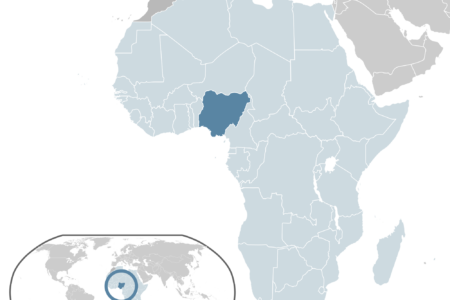Imagine an entrepreneur in Zimbabwe has a revolutionary idea that could change the face of an industry forever. Also imagine that he/she has the financing and relevant support to bring the product to market. Still, there would likely be a marked difference in uptake between such a product targeting Zimbabwe versus one targeting the United States at a very crude and rudimentary level. In some ways, business and technology are a numbers game, and therefore characteristics of target markets are an important contributing factor to the potential & realized success of tech startups in Africa and across the world.
The Effect of Numbers

Numbers determine how easily a startup can gain traction. The above graphic shows the number of tech Unicorns, companies valued at more than $1 billion, by country. One thing that’s clear is that the USA, the home of Silicon Valley, is significantly ahead of the rest of the world. Another observation is a link, though perhaps tenuous, between population size and the creation of unicorns. The United States has a population of 324M, while China and India have populations of 1.37B and 1.31B respectively. Indeed, the average population of the top 10 countries is 302M.
Entrepreneurs building tech startups in and for countries with large populations have an inherent advantage. The main reason that startups fail, according to research done by CB Insights (PDF), is that there is “no market need” for their product or service. The larger the population however, the better chances there are for the entrepreneur to find viable markets that have a problem that needs solving.
The Quality of the Numbers
In addition to the ‘size’ of the numbers, another important factor is the ‘quality’ of the numbers. While markets in Africa may have large populations (e.g, Nigeria, Ethiopia, and the Democratic Republic of Congo), individuals in these markets may not have strong ability, or willingness, to pay for the services.
For more on the African consumer’s willingness to pay for software, see Africa’s Digital Revolution: It’s Not Easy
Considering that Zimbabwe has both a small population and lower consumption/spending levels, startups in the country may be at a disadvantage when it comes to gaining traction. Looking through the lens of the diffusion of innovation, initial traction in any given market is delivered by ‘innovators’ and ‘early adopters.’ If the percentage of these customer groups is low, then the chances of a startup’s survival and growth are lowered. If, for instance, the majority of a market is full of ‘laggards,’ the rate of uptake of a startup’s products & services is significantly hampered and marketing & distribution costs are likely to increase.

What can Zimbabwean and African startups do?
There is a movement, ‘Born Global,’ that merits attention. In the technology startup space, newly formed companies have been able to gain international reach and revenues within a few years of inception, even while relatively unknown at home. For startups in Zimbabwe and elsewhere, these are some of the relevant questions to ask when considering a ‘born global ‘ strategy, or early, rapid internationalization:
- Is the market in your home country not large enough to support the scale at which you need to operate?
- Do you operate in a knowledge-intensive or high-technology sector?
- Is having technically advanced offerings key to your competitive advantage?
- Does your product or service category face few trade barriers?
- Does your product or service have high value relative to its transportation and other logistics costs?
- Are customer needs and tastes fairly standard across your potential country-markets?
- Do your products or services have significant first mover advantages or network effects?
- Have your major competitors already internationalized or will they do so soon?
- Do you have key managers who are experienced in international business?
In this context, some of the challenges for Zimbabwean or other African technology startups will likely be the level of technological advancement of their offerings, standardized customer needs and tastes across out-of-home-country markets being considered, and personnel with experience across borders.
Nevertheless, some startups in Africa will be able to employ rapid internationalization strategies within the continent and, may be able to take advantage of diaspora networks to gain footing (e.g., targeting Zimbabweans living in South Africa).
An Exponential Mindset
In a traditional market with a traditional product, it is normal to have an incremental mindset that fosters gradual development. In the digital age however, the challenge is that change in the market is rapid and volatile, and achieving the right numbers cannot be something incrementally planned for over the space of 5 or 10 years. Rather, most solutions need to achieve exponential potential really early on in their life-cycle to survive.
According to Mark Boncheck in the Harvard Business Review article, ‘How to Create an Exponential Mindset‘, an exponential mindset prepares a technology startup for viral and network growth and endows it to necessary tools to thrive in the uncertainty of its early days. For startups facing low numbers in their home markets, alongside poor ‘quality’ of those number, an exponential mindset can help with customer acquisition and analysis & understanding of network effects.
Flexible Business Planning vs. Having a Business Plan
Often, clear and credible business plans are required for entrepreneurs to access financing and investment. Yet for most startups in Zimbabwe the numbers barely make sense. How realistic is it to rapidly acquire 160k users/customers in Harare when that constitutes about 10% of the market share? (Whereas having 1% of the market in America constitutes having ~3 million users.)
It would no doubt be difficult for a startup in Zimbabwe in its earliest days to convince investors of its ability to reach 10% market share in Harare. Rather, such startups in Zimbabwe and elsewhere in Africa may be better suited to consider internationalization strategies across the continent. For example, an app developed in Zimbabwe and targeting that market gained very little traction for its first nine months or so. However, within four months of looking to Tanzania and partnering with a local company there, the product was able to significantly improve its growth trajectory. Flexibility, opportunity recognition, and the ability to adapt, instead of rigidly keeping to a business plan, may be necessary in markets with low numbers if the goal is to really scale.
Conclusion
Market size or numbers are an important contributor to the success not only of Silicon Valley startups, but also of startups in Zimbabwe and other African markets. However, the quality of that market also matters in terms of consumers’ ability/willingness to pay, their propensity to adopt new solutions, and more. For startups in countries with lower market sizes and quality characteristics like Zimbabwe, an exponential mindset and an internationalization or ‘born global’ strategy may both be worth exploring in the quest for growth and scale.
If you enjoyed this article, subscribe to be notified when more like it are published.
This article was co-authored with Tinashe Mukogo, a finance associate with Next47, Siemens’ venture capital and startup advisory business unit.





Share: